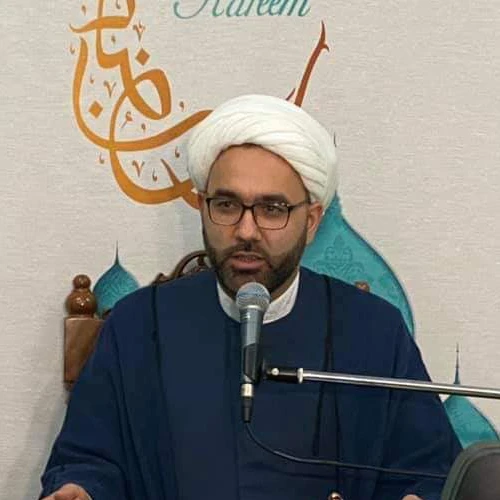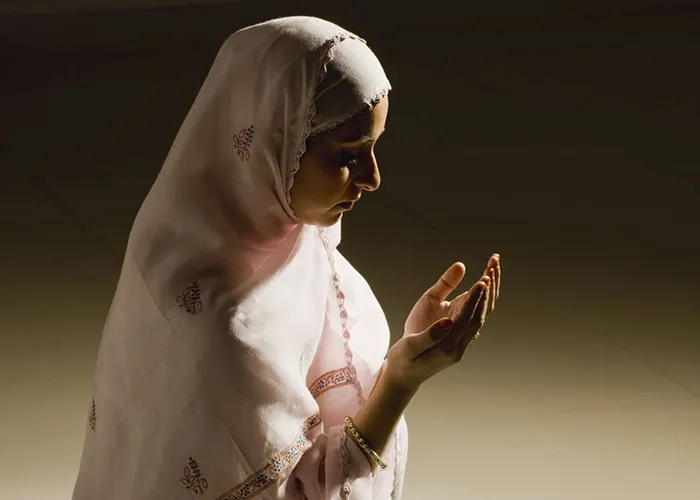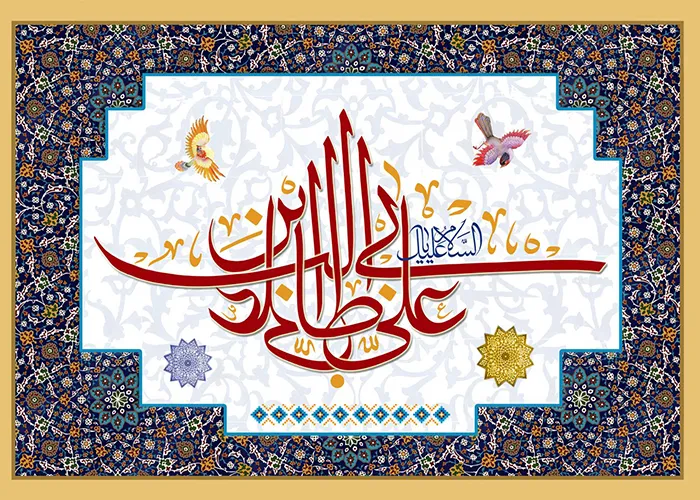Sheikh Mohammad Bakhtiari
From London to Sydney – Sheikh Mohammad Bakhtiari
In this week’s bulletin, we travelled from London to Sydney to highlight that the audience of this bulletin extends beyond the Green Continent. We warmly welcome any esteemed Friday prayer leader who has heard about this bulletin and take pride in promptly delivering it to any country or continent upon request, using any preferred method.
Sheikh Mohammad Bakhtiari, the Friday prayer leader of Al-Mahdi Mosque in Sydney, Australia, is not only known for his creativity but also has several publications to his name.
1- Please tell us in how many countries you have served as a Friday prayer leader, and in which country are you currently active in this role?
Greetings and respect to you, dear friends, and the esteemed audience of this valuable platform. Truly, cultural activities in non-Muslim countries, like England, are immensely valuable.
I have had the honour of serving as a Friday prayer leader for about four years in Sydney, at Al-Mahdi Mosque (AJ). Recently, I have been serving the faithful in Brisbane, Australia, as a Friday prayer leader. The Friday prayer is highly valued here and provides a wonderful opportunity to address weekly issues, gain knowledge, and hold communal gatherings, serving as a friendly and collective meeting point for the Shia residents of Sydney and Brisbane, Australia.
2- How did you move from Afghanistan to Europe and then to Australia?
In accordance with the verse, “…and those who emigrated and strove in the path of Allah” (Qur’an), I came to Australia at the invitation of dear friends and after consulting with scholars, teachers, and esteemed religious authorities, such as Grand Ayatollah Safi Golpayegani.
My consultation with this great scholar is something worth sharing for all those involved in overseas Islamic propagation. When I asked for his guidance regarding my move to Australia, he said, “I only ask you for your prayers because you are going to the front lines, while we in Qom are not doing much—we only walk to the shrine to teach.”
Although he was extremely humble, his words served as a reminder to people like me about the importance of cultural and religious work in Western countries.
Despite my deep reluctance to trade even an hour of living near the holy shrine of Hazrat Masoumeh (peace be upon her) for anything in the world, I prioritized the significance of religious propagation abroad and obeyed the guidance of senior scholars. Thus, in 2016, I moved to Australia.
3- Based on my understanding from your visit to London last year, you seem to be someone with creativity and new ideas. As a Friday prayer leader, what new ideas have you introduced so far?
When I arrived in Sydney, I noticed, unfortunately, that no morning congregational prayers were being held in the city, even though several mosques and Islamic centres of our Sunni brothers were conducting them.
My first initiative was to establish morning prayers at the Ahl al-Bayt Mosque (peace be upon them) in Sydney, Australia. With the encouragement and satisfaction of the worshippers, we began holding 40-day sessions of post-prayer recitations, including Ziyarat Ashura, Dua al-Ahd, or selections from Munaajat Khamsa Ashar. Additionally, we organized intimate discussion circles where a topic was introduced in each session based on Quranic verses and narrations, encouraging participation from attendees.
One memorable story from these morning prayers and discussion circles is from 2017. A devout and talented young Iranian man travelled a long distance daily by car to attend the mosque for morning prayers. Despite the long commute and his academic commitments, he never missed the congregation and actively participated in the friendly gatherings.
At Al-Mahdi Mosque (AJ) in Campbelltown, Sydney, after the afternoon prayers, we introduced short daily talks for a few minutes on relevant topics and Islamic rulings. These sessions were shared on YouTube and Facebook channels, attracting thousands of viewers.
The Friday prayers at this mosque are also unique. Due to the multicultural nature of the audience, the sermons are delivered in three languages: English, Farsi, and Arabic. This inclusivity has helped reach and engage a diverse congregation effectively.
4- Have you published any works?
During my school years, I wrote a book titled “A Guide for Students in Matters of Study and Life,” which was published twice due to the significant effort and time I devoted to it.
I have also written several other booklets that have not yet been published. These include:
- “The Rights and Responsibilities of Governments Toward Their People”
- “The Role of Shia Pashtuns in Governance”
- “The Political Thoughts of Grand Ayatollah Hujjat”
- “The Role of Women in the Success of Families and Society”
I strive to continue writing these cultural works with the blessings of the Almighty.
5- How much are Friday sermons influenced by current events?
As you know, Islam is a social religion, and Muslims in every region strive to stay informed about one another’s circumstances by attending congregational prayers at least three or five times a day. Similarly, at the end of each week, Muslims gather for Friday prayers in their city or region to learn about the most recent developments of the past week and what lies ahead.
Therefore, addressing current events is an inseparable part of Friday sermons. For this reason, two distinct sermons are delivered, and the Friday prayer leader must stay informed and up to date on contemporary issues in matters of belief, ethics, and religion to meet the needs and expectations of the community.
6- Can you tell us about the challenges Muslims face in Australia?
Unfortunately, we have not fully utilized the opportunities available to Muslims in Western countries, especially in Australia. According to statistics, over half a million Muslims live here. Considering those who do not openly express their religious beliefs, there are tens of thousands of Shia Muslims residing in Sydney alone.
Despite this significant presence, there isn’t a single seminary in the country based on formal standards, and as a result, there is a shortage of scholars and religious leaders in both Sydney and Australia as a whole.
Another challenge lies in the management of religious institutions. Many of these are run based on the personal preferences of their founders. Just as a hospital is managed under the supervision of a qualified specialist, an Islamic centre should also be led by a dedicated and expert religious scholar to ensure proper guidance and administration.
7- During the trip to Karbala that I had with you, I witnessed your activities with the Arbaeen Headquarters firsthand. If you are willing, could you explain more about this?
Based on the verse “And He made me blessed wherever I am” (Quran 19:31), I strive to be useful in every situation I find myself.
Therefore, even during my school years, I was involved in cultural activities, such as establishing and founding a cultural association, a school weekly publication, organizing events, and serving as a speaker. At the university level, I initiated an environmental association, a fund to assist the underprivileged, organized ceremonies and speeches, held gatherings in front of the university gate, and engaged in activities with the citizens’ council.
Praise be to God, I have also implemented numerous plans within the Arbaeen Headquarters, including the proposal for an international Mawkib (service station) along the Najaf-Karbala route, which will host foreign guests from various countries. Additionally, I am pursuing your esteemed proposal to establish the “Husseini Journalists Club.”
news via inbox
Subscribe to the newsletter.




